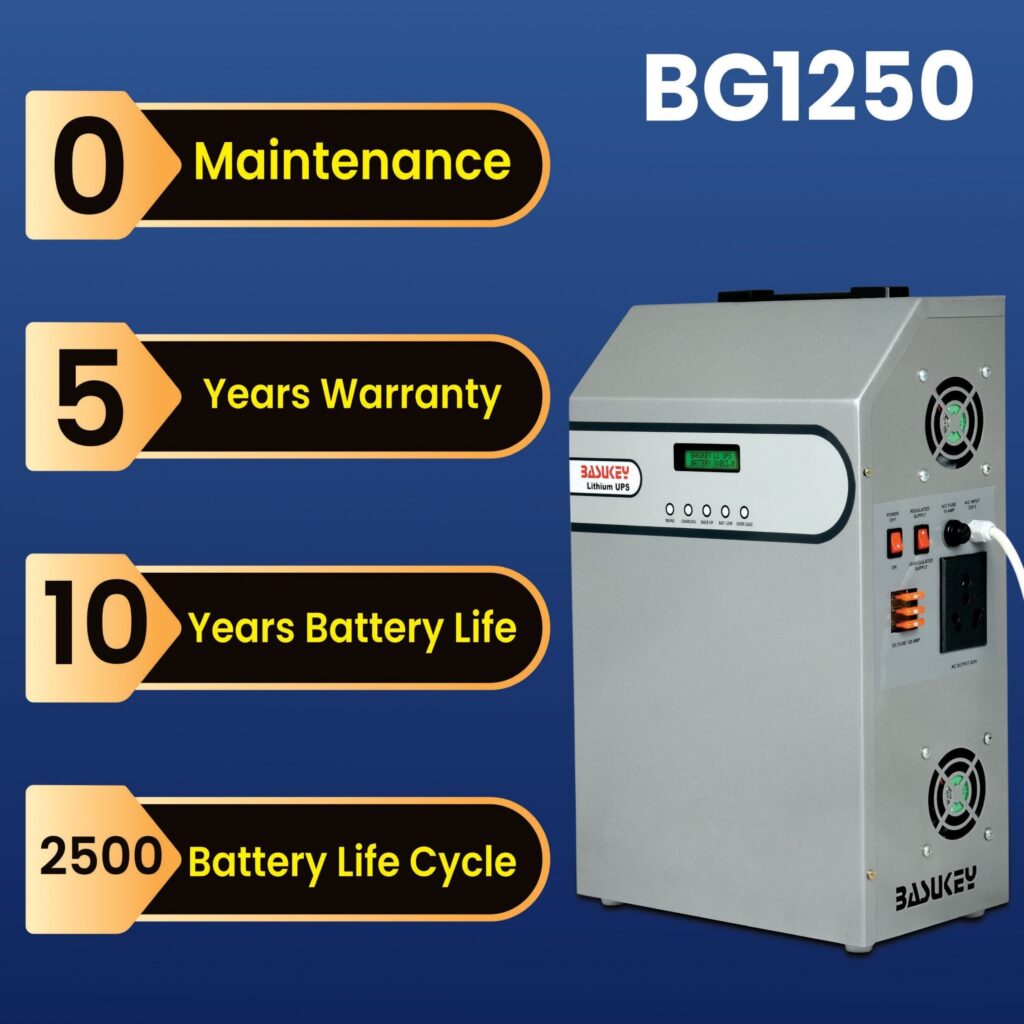Lithium vs. Lead-Acid: Which Battery is Better for Your Business?
Lithium vs. Lead-Acid: Which Battery is Better for Your Business? When it comes to powering your business, choosing the right battery system is crucial. Whether you’re looking to power critical operations, protect sensitive equipment, or ensure that your business can continue functioning during power outages, the type of battery you use plays a significant role in your overall energy strategy. Traditionally, lead-acid batteries have been the go-to solution for Uninterruptible Power Supply (UPS) systems, but with advancements in technology, lithium batteries are now emerging as a more efficient, long-lasting alternative. This article will help you understand the key differences between lithium and lead-acid batteries to determine which one is the best fit for your business.
1. Lifespan: The Long-Term Investment
Lead-Acid Batteries
Lead-acid batteries are known for being affordable upfront, but they come with a relatively short lifespan—typically around 3 to 5 years. Over time, they degrade, leading to decreased capacity and performance. Frequent replacements can become a significant ongoing cost for businesses.
Lithium Batteries
In contrast, lithium batteries offer a much longer lifespan, typically 10 to 15 years. They can withstand more charge cycles (usually around 3,000 to 6,000 cycles) before experiencing significant degradation. This longevity not only means fewer replacements but also greater reliability and savings in the long run. Solution: If longevity and fewer replacements matter to your business, lithium batteries offer clear advantages.
2. Efficiency: More Power, Less Waste
Lead-Acid Batteries
Lead-acid batteries typically operate at a lower efficiency, with 70-80% of the energy used during charging being converted into usable power. This means that a significant portion of the energy is lost during each charge and discharge cycle.
Lithium Batteries
On the other hand, lithium batteries have higher efficiency rates, typically around 95-98%. This means that less energy is wasted during the charging process, maximizing the usable power you get from each battery cycle. Solution: Lithium batteries provide better energy efficiency, saving you more in energy costs and improving overall performance.

3. Charging Speed: Faster Recovery Means Less Downtime
Lead-Acid Batteries
Lead-acid batteries are known for slower charging times, typically taking 8 to 12 hours to reach a full charge. This extended charging time can lead to longer periods of downtime, which could be critical for businesses with high uptime requirements.
Lithium Batteries
Lithium UPS systems charge up to five times faster, often reaching full capacity in just 2-3 hours. The quicker recovery time reduces business downtime, ensuring that systems are up and running sooner after an outage. Solution: If minimizing downtime is essential for your business operations, lithium batteries are the better option.
4. Maintenance: Less Hassle for Your Team
Lead-Acid Batteries
Lead-acid batteries often require regular maintenance to ensure they perform optimally. This includes checking fluid levels, cleaning terminals, and ensuring proper ventilation. Over time, corrosion and sulfation can lead to battery failure if not properly maintained.
Lithium Batteries
Lithium batteries, on the other hand, are low-maintenance. They require no water refills, are less prone to sulfation, and are typically sealed units, making them far easier to maintain. Their advanced Battery Management System (BMS) ensures optimal performance and protects against overcharging, overheating, and deep discharge. Solution: Lithium batteries offer minimal maintenance and a hassle-free experience, allowing your team to focus on core business functions.
5. Environmental Impact: Sustainability Matters
Lead-Acid Batteries
While lead-acid batteries are recyclable, they contain toxic materials like lead and sulfuric acid, which can pose environmental hazards if not properly disposed of. Additionally, the short lifespan and frequent replacements lead to more waste over time.
Lithium Batteries
Lithium batteries are non-toxic and generally safer for the environment. They have a lower carbon footprint over their lifespan due to their efficiency and long-term use. Furthermore, lithium batteries are recyclable, and their advanced technologies are constantly evolving to become more sustainable. Solution: If your business values sustainability and environmental responsibility, lithium batteries are the cleaner choice.
6. Cost: Initial Investment vs. Long-Term Value
Lead-Acid Batteries
Lead-acid batteries have a lower upfront cost, making them more attractive for businesses with a limited budget. However, the cost of frequent replacements, maintenance, and inefficiency can add up quickly.
Lithium Batteries
Lithium batteries come with a higher initial cost but offer better long-term value due to their longer lifespan, higher efficiency, lower maintenance needs, and reduced total cost of ownership. Solution: While lead-acid batteries may seem cheaper initially, lithium batteries offer better long-term value, saving your business money over time.
Both lithium and lead-acid batteries have their advantages, but lithium UPS systems consistently outperform lead-acid systems in terms of longevity, efficiency, charging speed, and low maintenance. For businesses looking for reliable, sustainable, and cost-effective power backup solutions, lithium UPS batteries are the clear winner. If you’re looking to make a smart investment in energy storage, consider upgrading to Basukey Lithium UPS systems, which provide the reliability and performance your business needs for today’s demanding energy requirements. Contact Basukey today to learn more about how our lithium UPS solutions can enhance your business operations and safeguard against power disruptions.
